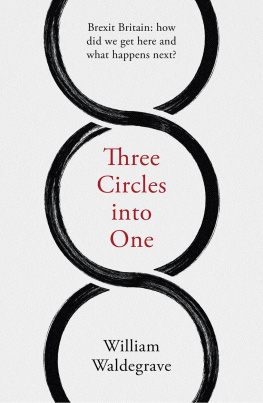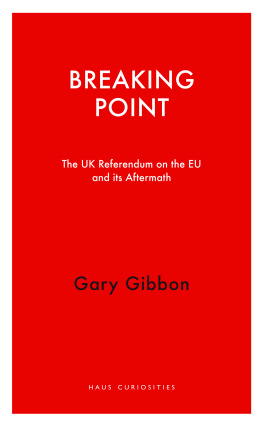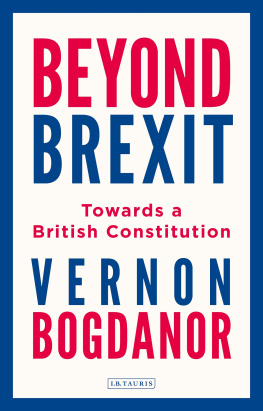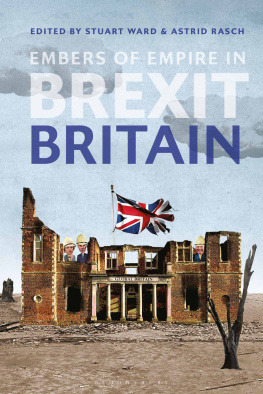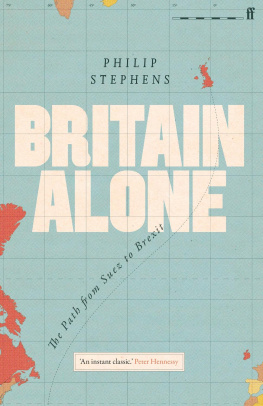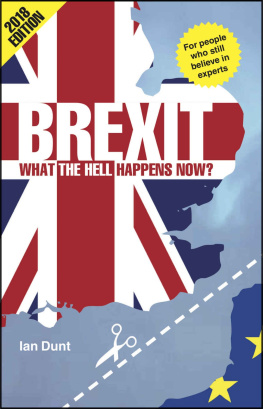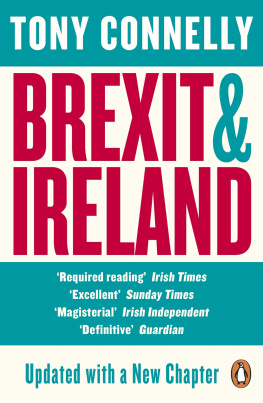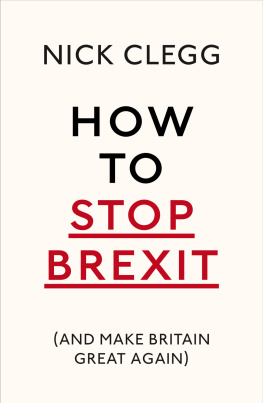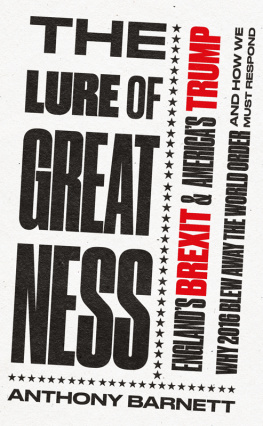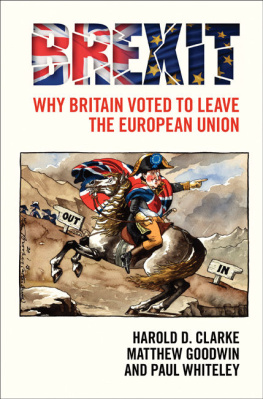State of Paralysis
State of Paralysis
A Cultural History of Brexit
John Elsom
Paperback ISBN: 978 0 7188 9517 4
PDF ISBN: 978 0 7188 4730 2
ePub ISBN: 978 0 7188 4731 9
Kindle ISBN: 978 0 7188 4732 6
The Lutterworth Press
Click on the link above to see our full catalogue for more excellent titles in Hardback, Paperback, PDF, ePub and Kindle!
Would you like to join our Mailing List?
Click here!
Enjoyed this book?
Review it on Amazon so others can too!
Click here!
More Works by John Elsom:
Plays
Peacemaker
Maui
One More Bull
How I Coped
Malone Dies
The Well-Intentioned Builder
The Man of the Future is Dead
Second Time Round
Old Boy
World Within
Books
Theatre Outside London
Erotic Theatre
Post-War British Theatre
The History of the National Theatre
Post-War British Th eatre Criticism (Ed.)
Cold War Theatre
Is Shakespeare still our Contemporary? (Ed.)
His Works with
The Lutterworth Press:
Missing The Point
State of Paralysis
State of Paralysis
A Cultural History of Brexit
John Elsom
The Lutterworth Press
The Lutterworth Press
P.O. Box 60
Cambridge
CB1 2NT
United Kingdom
www.lutterworth.com
Paperback ISBN: 978 0 7188 9517 4
PDF ISBN: 978 0 7188 4730 2
ePub ISBN: 978 0 7188 4731 9
Kindle ISBN: 978 0 7188 4732 6
British Library Cataloguing in Publication Data
A record is available from the British Library
First published by The Lutterworth Press, 2019
Copyright John Elsom, 2019
Cover credits:
(front) David Holt, London October 20 2017 (50) Scaffolding Big Ben ;
(back) Freepik, London Skyline and Illustration of UK flag Vector.
All rights reserved. No part of this edition may be reproduced, stored electronically or in any retrieval system, or transmitted in any form or by any means, electronic, mechanical, photocopying, recording, or otherwise, without prior written permission from the Publisher ().
Acknowledgements
This has not been an easy book to write. I have needed help and support from many people. Top of the list has been the constant encouragement that I have received from Judith Elliott, a former BBC producer with an eagle-eye for errors. She read the drafts, helped to compile the Index and the Appendix, and checked the proofs. Many friends read the typescript and discussed the contents with me, among them Roger Jeal, Paul Medlicott, Peter OHagan, John Pick and David Warwick. I was always able to contact my colleagues in the International Association of Theatre Critics to gain their non-British views on what became a humiliating episode in our national life. My son, Jon, a systems analyst, gave me his professional advice on the Internet. The team at The Lutterworth Press, including my Euro-sceptic editor, Adrian Brink, and the design and content editor, Debora Nicosia, were helpful throughout and skilfully adjusted to the sliding time-scales.
Finally, I would like to thank someone, who will never read this book but was physically present while much of it was being written. Shortly after I received the contract, my wife, Sally Mays, was diagnosed with lung cancer from asbestos poisoning. She had only a few months to live. Her courage and spiritual strength acted as a constant reminder that, however serious the issues that surrounded Brexit might seem, they paled into insignificance beside the life-and-death struggles of our daily lives, everywhere.
John Elsom
Chapter One
Never Again
(i)
I was nine years old during the days of the Normandy invasion and can remember kneeling beside my bed, praying for the Allies to win. I used to watch the shadows of leaves, cast through the window and playing upon the sheet, and pretend that these were the shifting front lines of the opposing armies. Even as a child I knew what was at stake. In June 1944, we were accustomed to the disciplines of war: rationing, sirens and blackouts. I was always sent to bed before the BBC Nine OClock News but I could guess from the tone of the voices downstairs whether the news was good, bad or simply terrible. The BBC had gravitas. It was careful not to be alarmist or over-cheerful, and to keep its emotions in check at all times, for there could be no victory without sacrifice. The formal voice suppressed the anxiety.
But D-Day was different. We were on the front foot and not the back, to use a phrase from cricket, attacking not defending; but this push towards victory held many risks. We were throwing hundreds of thousands of men against a well-fortified coast across the Channel and nobody knew what would happen next. In Cheltenham, the garrison town to which my family were evacuated, wards in the hospital were cleared of all but emergency patients. That was how we knew that something was going to happen but Careless Talk Costs Lives, as the posters said, and so we kept quiet and said nothing, and waited for the BBC Nine OClock News.
This book is not intended to be about my personal memories but about the climate of opinion in Britain, our changing culture, that led to Brexit and the out-in-out relationship with our continental neighbours that upset what had seemed to be the world order in 2016. But memories do play a part. Within the mixture of motives and facts, legends and myths, that characterised the European Union (EU) Referendum in 2016, there were many echoes of World War II, and the time when Britain stood alone, and then not quite alone and, finally, with the help of the Americans, Canadians, Poles, Australians and divisions from what was still the British Empire, we managed to push back the Axis forces and won a glorious victory.
That is now the national narrative, celebrated in books, films and YouTube clips, and passed down from parent to child in what has become a collective memory. It is not exactly false or fake but censored here and there, simplified and turned into a ripping yarn. The facts stay the same but certain elements are missing, which prevent the well-documented history from sounding wholly truthful, all Brylcream and stiff upper lips. From my stock of childhood memories, however, I can still remember the ferocious uncertainty, expressed in the voices downstairs, the fear and overdetermination, repeated twice a day at school and at bedtime, to believe that God was on our side and would eventually prevail.
This narrative is woven into the fabric of British culture, a distinctive feature, which we take for granted, but from a few miles away, across the English Channel, may seem one-sided and even complacent. That is what a national narrative is like. It offers a useful framework, part history, part legend, in which we can place who we are, where we come from and what our native qualities may be. But when we examine this structure closely, we can notice how fragile it is, how much guesswork went into its making and how under pressure, it can buckle and snap, leaving us with little sense of national identity at all. Where was the Battle of Stalingrad in the British narrative of how we won the war? Just outside the frame.


